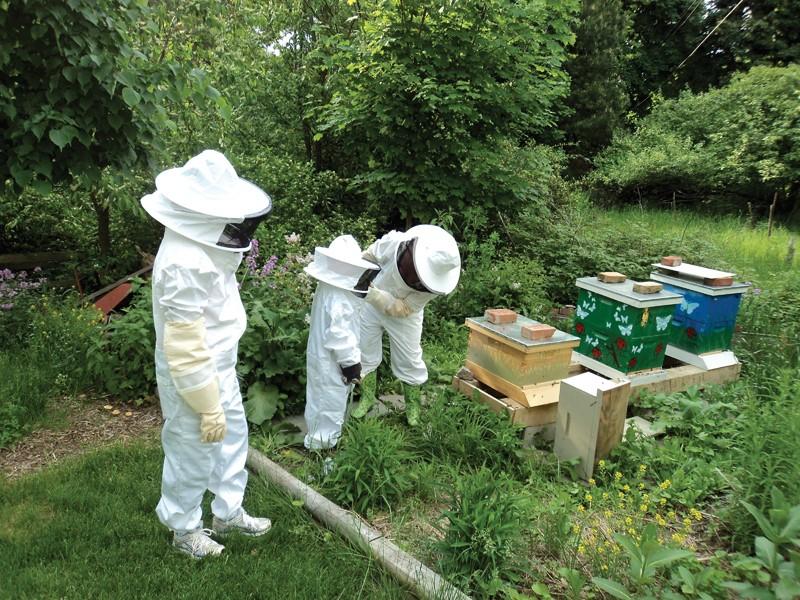GV takes on Beehive Building Day

Courtesy Photo/ Ann Marie Fauvel
Apr 16, 2012
Grand Valley State University’s Meijer Campus in Holland hosted Beehive Building Day on Saturday to teach visitors why bees are so important in shaping society.
Anne Marie Fauvel, professor of liberal studies and an avid beekeeper, said she chose the Meijer campus to install two new apiaries, or beehives, because it provides a rural environment for them and the bees would benefit the neighboring blueberry farmers and VanRaalty Farm. She added that this project would also benefit from the Holland Beekeeper’s association.
With these two beehives, the hope is to collect data every 15 minutes during the day along with minimal weather information, which will be uploaded onto a website and contributed to the HoneyBeeNet project, a NASA endeavor providing a central location for the collection and sharing of nectar flow records. Now that funding has been approved, nothing is stopping Fauvel and her crew, comprised of the “Green Team” she founded four years ago. Those involved include GVSU faculty, staff and community members as well as the Grand Valley Beekeeping Club.
Jennifer Holt, a GVSU senior, started the Grand Valley Beekeeping Club in November 2011.
“Over the past several years I have become more and more passionate about sustainability, so when Anne Marie Fauvel asked if I would be interested in helping her bring two hives to GVSU I told her that I would love to,” Holt said.
“Through the process of grant writing it became apparent that our project was more likely to be successful with more student support, so I decided to start the beekeeping club.”
The GV Beekeepers became official at the end of last semester and has been slowly growing as word gets around.
Holt said some people may be unaware of how much honeybees are responsible for pollinating a huge amount of food, as well as alfalfa for livestock. Other uses for bees include products used for candles, medicine and cosmetics. These insects also have implications for sociology or politics with the caste systems in their hives, and there has even been work in training honeybees to find bombs.
Holt said honeybee populations are declining, mainly due to the emergence of Colony Collapse Disorder, or CCD.
“Honeybees have begun to simply fly away from their hive, leaving behind their brood,” she said. “No cause has been found, but the most recent theory is that CCD is caused by a combination of the threats facing honeybees today. These threats are numerous, ranging from increased pesticide use, commercialization of beekeeping and decreased immunity to pests and diseases. The threats even go so far as the genetic modification of honeybees through the artificial insemination [of] their queens.”
Holt said the goal for this event was to build the beehives in an educational and friendly environment. She added that even though the club is small, she would love to build a network of beekeepers and offer beekeeping services to those who are interested.
Holt said the challenges of building apiaries include securing funds and convincing people that the honeybees wouldn’t create a threat to students’ safety, as well as debunking common misconceptions about honeybees.
For more information about beekeeping, contact Jennifer Holt at [email protected] or search Grand Valley Beekeepers on Facebook.

























